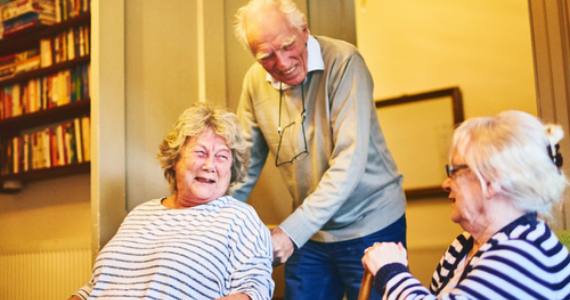The daily grind of a job working for an over-bearing boss, or is it a family or financial problem, a traumatic life-event, or the fear of getting older can force us to sit down and really think about the meaning of life. Why are we here? What is our purpose? What do we want to be known and remembered for? What makes us smile?
We move through our life stages from carefree kid, teenage school years, our working years, finding a partner and (maybe) having a family and watching them grow into adults. Then we finish up work, move into retirement and then onto our “third life” elderly years. At each of these stages our purpose and priorities in life can, and often does, change.
Some feel comfortable with these life transitions. It’s not unusual for someone to be struggling to find and implement a meaningful life. You don’t walk this path alone.

The theory…
Psychologist Abraham Maslow talked about finding purpose as a key human need and that getting clear on your purpose starts with what you do … the activities that fill your day. Get clear on what these activities are, then practice and do them consistently. Build good life habits.
Others have written that finding true purpose in life is about building three (3) “big rocks” in your life by finding: (1) something to do; (2) something to love; and (3) something to hope for.
The findings…
About 10 years ago, the then UK Prime Minister, David Cameron, wanted to get a better idea about well-being in the population. The English Longitudinal Study of Ageing was a study that he turned to. It’s a comprehensive study looking at multiple things to do with work, retirement, health, and social activity to name a few. In a nutshell, it identifies what happens to people as they age.
One of the key findings to-date was that people involved in the study who were doing “worthwhile” activities in their life (as understood by the researchers over the years through constant checking-in and asking questions) were generally healthier, had less pain, had developed fewer illnesses and diseases, were sleeping better, generally happier and overall satisfied with their lives.
Another very interesting and important finding from the research is that “social engagement and activity” at older ages is very critical to health and well-being. Prosocial activities contribute to people feeling that their life is worthwhile and that they have valuable things going on in their lives. Those people who become isolated and who don’t maintain regular contact with other people are more likely to “age” more rapidly. The incidence of isolation and loneliness is sadly on the increase leading many health experts to claim this as a “silent killer” of many people.
How does aged care fit in?
Many people want to live in their own homes (or a “downsized” home) for as long as they possibly can, maintaining their independence and control over their lives.
However, with ageing can come reduced movement and mobility. Those day-to-day chores around the home just get that little bit harder and uncomfortable to manage and do.
That’s where the Government steps in with their “home help funded programs.” People can work with aged care providers to bring help and assistance into the home. Along with nursing-in-the-home services, this type of help may be assistance with house cleaning, food preparation or delivery and lawn mowing. These are the most common that we see. All are great help for those that need them.
However, what we don’t see happen anywhere near enough is people asking for help to participate in social engagement activities. These can be as big or as small as your imagination. It might be travel assistance to attend a club or organisation, someone to walk with along the beach or in a park, a therapeutic massage to give better movement or mobility, meeting with people to sing in a choir or a book club or a men’s shed. Or you might just want someone to talk to… simple as that.
The options are endless and typically very individualised to each person. The research shows that if these social engagement activities are wanted and are able to be done – they are beneficial to people’s health, well-being and happiness.
It’s time for the aged care industry to do something different… start to challenge the status quo and stop hiding behind the (written… and often unwritten) rules. Rules don’t have to be “broken.” However the rules can be ever so slightly “bent” or “reshaped” to help people as they age to live a meaningful life… and one of purpose.
If you’d like to find out more about Aged Care, contact us today on PH: 0437 782 836.
Source: Reproduced with permission of Family Aged Care Advocates
Download 10 aged care traps to avoid for your ageing parents
No specific person’s personal objectives, needs or financial situations were taken into consideration when creating the content for this article. Family Aged Care Advocates Pty Ltd (ABN 77 642 454 484) are aged care specialists. You should seek qualified financial planning, taxation and legal advice before making any decisions that are unique to your circumstances.
This article was prepared in good faith and we accept no liability for any errors or omissions. Any information provided by the author detailed above is separate and external to our business. Our business does not take any responsibility for any action or any service provided by the author. Any links have been provided with permission for information purposes only and will take you to external websites, which are not connected to our company in any way. Note: Our company does not endorse and is not responsible for the accuracy of the contents/information contained within the linked site(s) accessible from this page.



